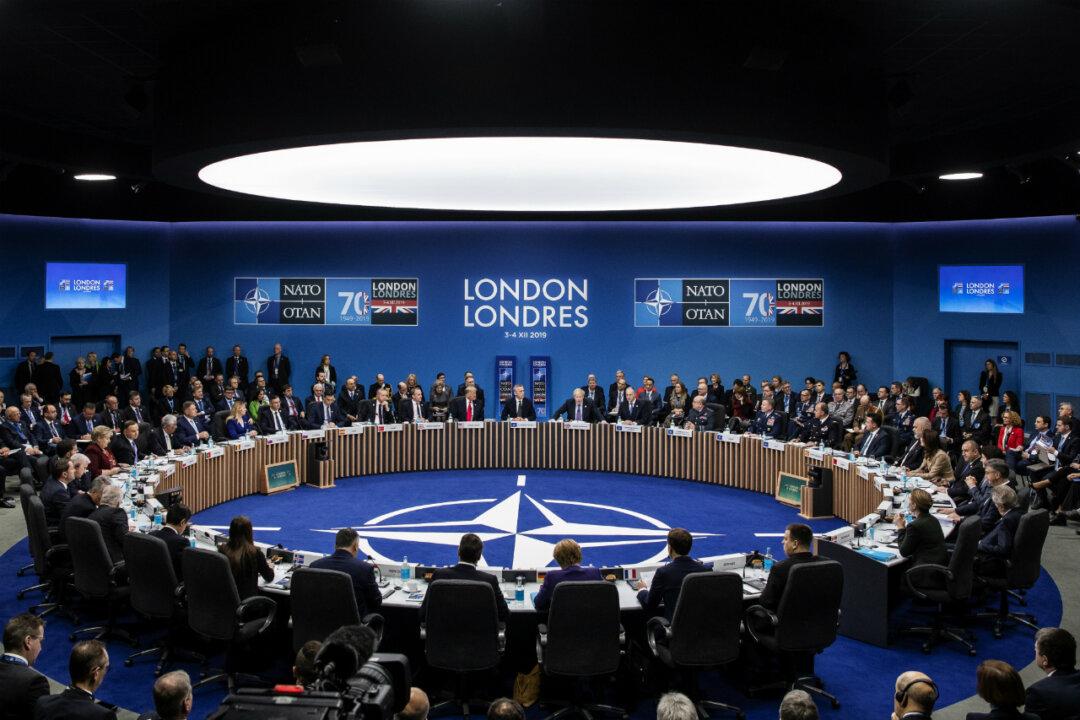Leaders of all NATO member states held a plenary meeting on Dec. 4 in London, in the place where NATO was founded 70 years ago.
According to doorstep remarks by NATO Secretary-General Jens Stoltenberg, there were plans to discuss at the plenary session “the fight against terrorism, arms control, and NATO’s relationship with Russia.” For the first time in NATO’s history, according to Stoltenberg, the NATO leaders planned to discuss the rise of China.





